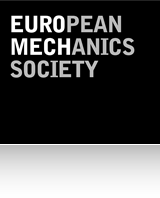– Machine learning methods for prediction and control of separated turbulent flows
Chairperson:
Lionel Mathelin
LIMSI - CNRS
rue John von Neumann
Campus Universitaire d'Orsay
Bat. 508
91405 Orsay cedex
France
email: mathelin@limsi.fr
Co-chairperson
Peter Schmid
Faculty of Natural Sciences
Department of Mathematics
Imperial College
London, UK
email: peter.schmid@imperial.ac.uk
The steady rise of machine learning techniques, combined with the availability of affordable sensor arrays, has had a transformative impact in a large number of scientific fields. With the dramatic increase in data accessibility and computational power, traditional model-based approaches in engineering are giving way to a data-enhanced paradigm. Prediction and control of turbulent flows, a challenging area of engineering sciences, are no exception in this respect. Despite early attempts, the successful control of such complex systems by machine learning techniques raises specific issues such as weak observability or an exhaustive range of temporal and spatial scales. Moreover, the effective incorporation of knowledge about the physical system, such as symmetries, invariances or conservation laws, into the learning process is far from trivial.
Nonetheless, recent success of machine learning techniques in the prediction of chaotic dynamical systems and control of highly nonlinear flows has fueled a great many research efforts and has shown that progress in this field critically relies on an interdisciplinary skill set, ranging from applied mathematics and machine learning to physics, from computer science to experimental methods. The aim of the proposed workshop is to bring together control practitioners, fluid dynamicists and machine learning experts to critically review recent developments in the field and identify both opportunities and challenges in using machine learning techniques for high-dimensional physical systems. The workshop should act as a forum for exchanging ideas and as an occasion to learn and discuss.
